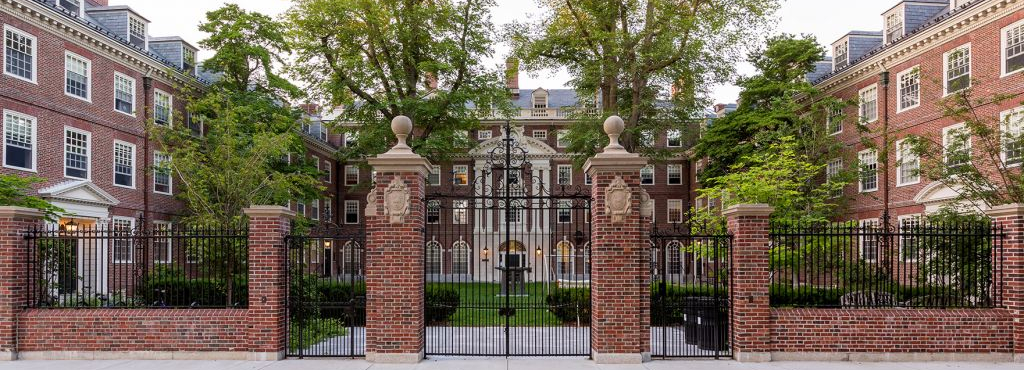Harvard is one of the most popular first-choice colleges for students, and it’s also one of the most competitive. Admission rates are consistently under 5% — for the class of 2028, the admission rate was 3.65%.
Given this competitive admissions rate, some very talented students are going to find themselves on Harvard’s waitlist. While most applicants have a general idea of what a waitlisted outcome means, few understand how waitlists really work and what they can do to boost their odds of admission.
What Does It Mean to Get Waitlisted?
Before diving into the specifics of the Harvard waitlist, it’s important to understand what being waitlisted means in general. Waitlists are made up of strong applicants who met the college admissions criteria for the school they applied to, but the institution was unable to immediately offer them admission. Simply put, being waitlisted means you will be considered for admission if a school needs additional students for its incoming class. However, you may not find out if you are admitted until after National College Decision Day on May 1.
What the Harvard Waitlist Stats Show
So, what happens if you apply to Harvard and find yourself on the waitlist? The first question students generally ask is how likely they are to gain a spot in the class, followed by what they can do to improve their odds of admission. Neither of these questions has a simple answer, but you can look at a few statistics to gauge your chances of admission and gain a better understanding of how the waitlist really works.
How Many Applicants Does Harvard Waitlist?
If you find yourself on the waitlist, you’re not alone. Since Harvard receives approximately 60,000 applications each year, there’s always a group of talented students that find themselves waitlisted. Our admissions counselors frequently say that schools like Harvard could build multiple classes filled with qualified candidates who meet the criteria for admission. Unfortunately, Harvard does not publish data on the number of students who are waitlisted each year.
How Many Waitlisted Students Get into Harvard?
There’s no set number for how many students get in from the Harvard waitlist. According to the Harvard FAQ page, the number of accepted students can vary greatly. Some years, more than 200 students have made it off the waitlist and earned a seat in the upcoming class. However, during some recent admissions cycles, Harvard’s yield rate — the number of admitted students who enroll — has been so high that the school hasn’t admitted a single applicant from the waitlist.
What to Do If You’re Waitlisted by Harvard
Getting waitlisted doesn’t mean you should literally wait around and do nothing. In fact, there are a few steps you will need to take and some additional actions you can pursue to be proactive and take some control over the situation.
Submit an Enrollment Deposit to Your Next-Choice College
Even if Harvard is still your first-choice school, it’s important to play it safe and submit an enrollment deposit at your next choice college. Submitting a deposit guarantees you will have a spot in that class, which is why it’s worth sending one in — even if you won’t be able to get a refund should you be admitted off Harvard’s waitlist.
Decide If You Want to Accept Your Spot on the Harvard Waitlist
The next step is deciding whether you wish to remain on the waitlist. Harvard’s waitlist isn’t ranked, so each waitlisted student has an equal chance of getting accepted. Generally, students are admitted off the waitlist to fill institutional needs and ensure that the upcoming class year has a diverse array of interests, ambitions, and backgrounds.
If financial aid is a major deciding factor for you, keep in mind that most of the financial aid may have already been given out to accepted students. If you plan to accept your spot on the waitlist, you will need to follow certain steps to boost your odds of admission. Just remember, there are no guarantees.
Keep Up a Good Academic Performance
Don’t let low grades get in the way of your chances of getting off the Harvard waitlist. Students need to demonstrate an ongoing commitment to academic excellence, so keep studying, participating in class, and doing your homework. In other words, don’t give in to senioritis! Not only will maintaining a strong academic performance help you stand out as a strong waitlist candidate; it’ll also ensure that you’re academically engaged and ready for the challenges of college-level coursework.
Send Additional Letters of Recommendation
Consider submitting more letters to round out the Harvard letter of recommendation that you submitted with your application originally. If a teacher, coach, mentor, supervisor, or instructor can speak on your behalf and help give the admissions office more context into who you are both inside and outside of the classroom, reach out to them to see if they might be able to write a letter for you.
Write a Letter of Continued Interest
College admissions officers appreciate students who demonstrate their passion for their institution, and Harvard is no exception. Write a letter to the admissions office restating your desire to attend, articulating the impact you’ll make on campus, and the courses and activities you wish to participate in.
Don’t forget to update them on any new accomplishments you’ve made or milestones you’ve reached since submitting your college application. A letter of continued interest shows that you’re still very committed to enrolling in the upcoming class upon admission and that you’re still engaged in the application process.
Receive Waitlist Guidance from IvyWise
While receiving a waitlisted outcome can feel disappointing initially, earning a spot on Harvard’s waitlist is an accomplishment in and of itself. If you’re looking for additional guidance on getting off the waitlist or support while deciding what you should do next, IvyWise offers waitlist consultations to help students make an informed decision about their future.
Contact Us




